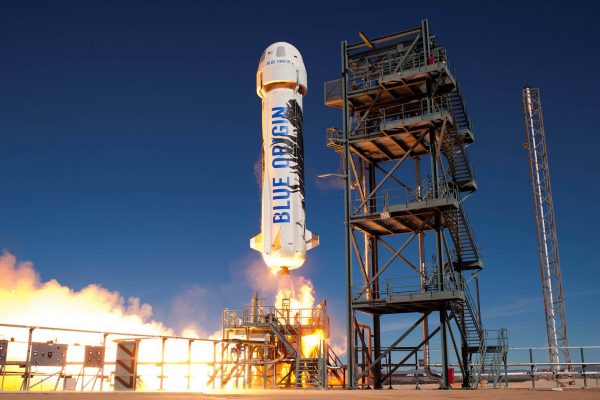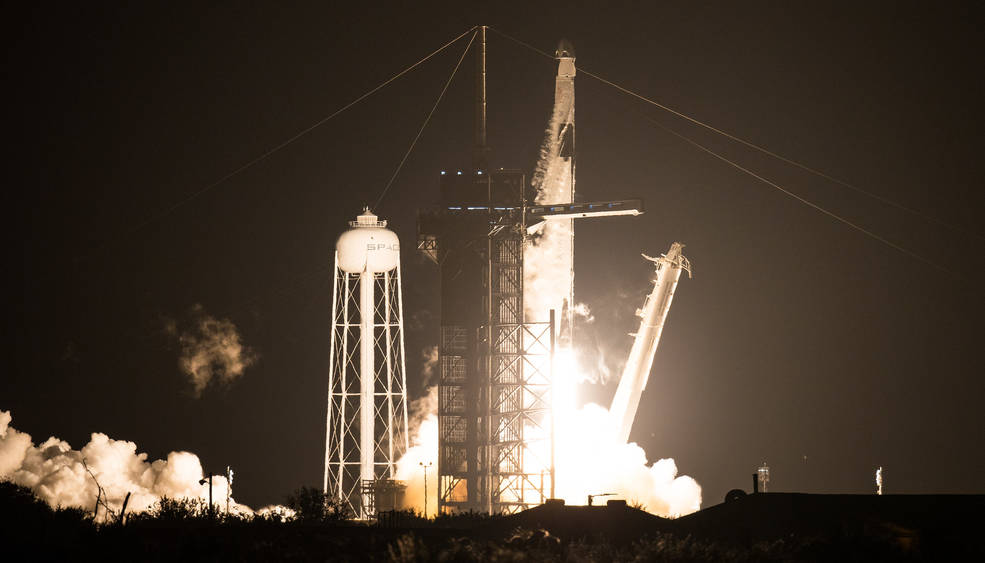
Reaching for the stars
What would be the profits—and costs—of a major development project be for your company? Three of the world’s richest men have made the plunge and remain—mostly—buoyant.

Rich and rocketing
Elon Musk and Jeff Bezos believe that one of the answers to climate change is to develop resources elsewhere. Well, that’s a view shared by most mining executives but in the case of those mentioned here, they are looking towards space to secure our future.
At the week-end, NASA announced that it will be using SpaceX’s returnable rockets to explore the moon. What’s in it for founder Elon Musk? He formed SpaceX in the hopes of revolutionizing the aerospace industry and making affordable spaceflight a reality, according to Britannica. The company entered the arena with the Falcon 1 rocket, a two-stage liquid-fuelled craft designed to send small satellites into orbit. The Falcon 1 was vastly cheaper to build and operate than its competitors, a field largely populated by spacecraft built by publicly owned and government-funded companies such as Lockheed Martin and Boeing.
Part of the rocket’s cost-effectiveness was made possible by the SpaceX-developed Merlin engine, a cheaper alternative to those used by other companies. SpaceX also focused on making reusable rockets (other launch vehicles are generally made for one-time use). If Musk’s marginal cost figures are at least somewhat correct, SpaceX’s cost to a launch a newly built Falcon 9 is about $50 million. The company charges $62 million for a standard commercial Falcon 9 launch with a new booster, so the first mission resulted in about $12 million in profit. Not bad for a man who’s main business is making electronic cars. On November 16 last year the SpaceX Falcon 9 rocket propelled the Crew Dragon spacecraft with NASA astronauts Michael Hopkins, Victor Glover, and Shannon Walker, along with Soichi Noguchi of the Japan Aerospace Exploration Agency into orbit to begin a six-month science mission aboard the space station.
Colonising space
Jeff Bezos says that when he steps down as executive chairman of Amazon, he will devote much of his time to building multi-billion dollar rockets. The goal for his company Blue Origin is to revolutionize space travel and colonise the solar system. “We’re committed to building a road to space so our children can build the future,” the company says on its website. It wants to continue to build more rockets and engines to launch people, and other payloads, beyond Earth’s orbit. Blue Origin benefitted from a range of NASA partnerships last year, so Bezos knows what the payback is when you commercialize your dreams.
Flying high
Richard Branson, the first billionaire wanting to expand into space, was recently quoted apocryphally as saying: “Want to know how to become a millionaire? Start out as a billionaire and launch a commercial airline.”
His Virgin Galactic is developing commercial spacecraft and aims to provide suborbital spaceflights to space tourists – revised date to be announced. Its spacecrafts are air launched from beneath a carrier airplane known as White Knight Two. The website says it wants to be “the world’s first commercial spaceline and vertically integrated aerospace company. We are developing and operating a new generation of space vehicles to open space for everyone. We believe we can inspire future generations and make it possible to experience our planet from a different perspective. We recognise that the answers to many of the challenges we face in sustaining life on our beautiful, but fragile, planet lie in making better use of space. That’s why we seek to inspire young people through space-inspired science, technology.”
One thing is for sure—three great visionaries who maybe don’t see a long-term future for us right here?
What is your vision of the future—and how will your company contribute to it? The fastest and most efficient way to crunch the numbers is, of course, Forecast 5’s superb budgeting and forecasting program.
Enjoy a three week free trial of Forecast 5 and start making big dreams a reality.
Stop Press
And if you are interested in space exploration today’s announcement by NASA of the first flight of a powered aircraft on another planet – the tiny “Ingenuity” helicopter is hard to beat!
Picture credits: company website.